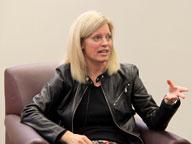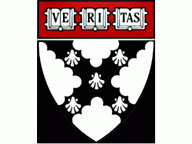Research Center Events
—
University Prof. Paul Romer Delivers Lecture on “Approaching the City through Pasteur’s Quadrant”
—

Paul Romer, University Professor, professor of economics, director or the NYU Stern Urbanization Project and interim director of NYU's Marron Institute on Cities and the Urban Environment, delivered a University Professorship Lecture entitled “Approaching the City through Pasteur's Quadrant" this Spring. The event was hosted by Provost David McLaughlin and Dean Peter Henry in Stern’s Cantor Boardroom.
Research Center Events
—

Paul Romer, University Professor, professor of economics, director or the NYU Stern Urbanization Project and interim director of NYU's Marron Institute on Cities and the Urban Environment, delivered a University Professorship Lecture entitled “Approaching the City through Pasteur's Quadrant" this Spring. The event was hosted by Provost David McLaughlin and Dean Peter Henry in Stern’s Cantor Boardroom.


















